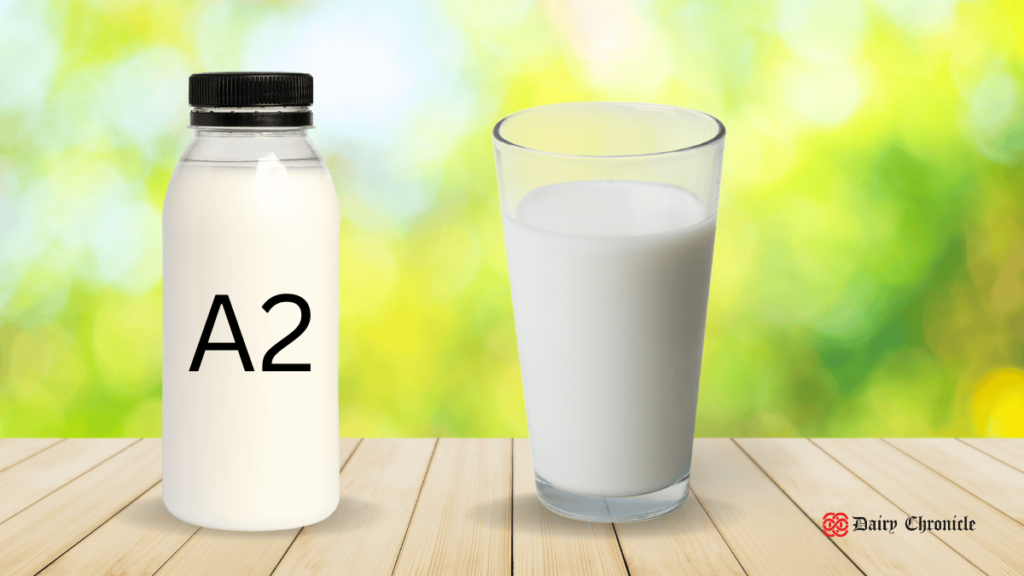A2 milk contains only the A2 variant of beta-casein, while regular milk typically includes both A1 and A2 proteins. This difference in protein structure can impact digestion and overall health. A2 milk is often easier to digest and may be a better option for individuals with sensitive stomachs, making it an increasingly popular choice.
A2 milk has gained significant attention in recent years as a potentially healthier alternative to regular cow’s milk. Unlike regular milk, which typically contains both A1 and A2 beta-casein proteins, A2 milk contains only the A2 variant. The difference between these two types of milk lies primarily in the protein structure, which can have implications for digestion and overall health. This article delves into the specifics of what A2 milk is, how it differs from regular milk, and why these differences matter.
Beta-Casein Protein
Milk is a rich source of protein, with casein being the most abundant, accounting for about 80% of the total protein content in cow’s milk. Beta-casein is one of the primary types of casein protein and is found in several variants. Among these, A1 and A2 beta-casein are the most prevalent. The A2 variant is considered the original form, found in older breeds of cattle such as Guernsey, Jersey, and Asian herds. The A1 variant, on the other hand, emerged due to a genetic mutation in European cattle several thousand years ago.
A1 Beta-Casein
The A1 variant of beta-casein differs from the A2 variant by just one amino acid in its protein structure. This seemingly minor difference can have significant effects on how the protein is digested. When A1 beta-casein is consumed, it breaks down in the digestive system to produce a peptide called beta-casomorphin-7 (BCM-7). Some studies have suggested that BCM-7 may be associated with a range of health issues, including digestive discomfort, inflammation, and possibly even chronic diseases.
A2 Beta-Casein
A2 beta-casein does not produce BCM-7 during digestion, which is why some people find A2 milk easier to digest. This lack of BCM-7 production is the primary reason A2 milk is marketed as a healthier option compared to regular milk.
Differences Between A2 and Regular Milk
The key differences between A2 milk and regular milk can be summarized in terms of protein content, digestive impact, and the breeds of cattle that produce them.
| Feature | Regular Milk (A1 & A2) | A2 Milk |
| Beta-Casein Type | Contains both A1 and A2 beta-casein | Contains only A2 beta-casein |
| Digestive Impact | May cause discomfort due to BCM-7 production | Less likely to cause discomfort due to the absence of BCM-7 |
| Cattle Breeds | Predominantly modern breeds like Holstein-Friesian | Older breeds such as Guernsey, Jersey, and Asian herds |
| Market Availability | Widely available and more affordable | Increasingly available, often at a premium price |
- Digestion and Health Impact
Regular milk, containing both A1 and A2 beta-casein, may cause digestive discomfort in some people. This is particularly relevant for individuals who experience symptoms such as bloating, gas, or diarrhea after consuming dairy products but are not diagnosed with lactose intolerance. The production of BCM-7 during the digestion of A1 beta-casein is believed to be a contributing factor to these symptoms. In contrast, A2 milk, which contains only A2 beta-casein, is less likely to cause such issues, making it a preferable option for those with sensitive digestive systems.
- Cattle Breeds
The type of beta-casein protein that a cow produces is determined by its genetic makeup. Older cattle breeds like Guernsey, Jersey, and Asian herds are more likely to produce milk that contains only A2 beta-casein. In contrast, modern dairy breeds such as Holstein-Friesian, which dominate commercial milk production, typically produce milk that contains a mix of both A1 and A2 proteins. As a result, the availability of A2 milk is more limited and often comes at a higher price due to the selective breeding required to ensure A2-only milk production.
- Market Availability:
A2 milk is becoming increasingly available in many parts of the world, especially in markets where there is a strong consumer demand for healthier and more natural food options. However, it is often sold at a premium compared to regular milk. This is due to the additional costs associated with breeding and maintaining herds of cows that produce A2-only milk, as well as the marketing and branding efforts that promote the supposed health benefits of A2 milk.
The primary difference between A2 milk and regular milk lies in the type of beta-casein protein present, which can affect digestion and overall health. While regular milk contains both A1 and A2 beta-casein, A2 milk contains only the A2 variant, which is believed to be easier to digest and less likely to cause digestive discomfort. As consumer awareness of these differences grows, A2 milk is gaining popularity as a premium dairy option.



